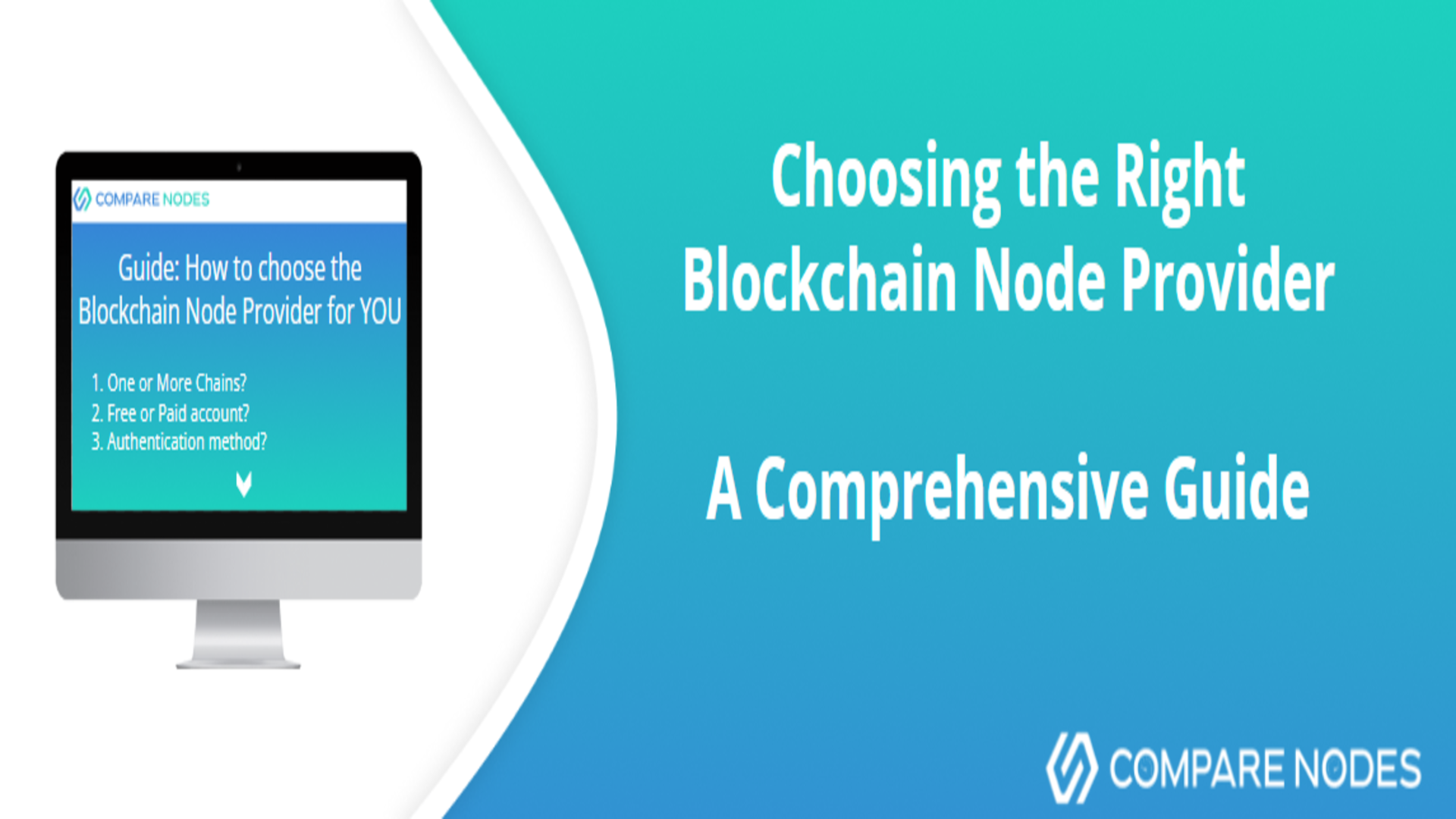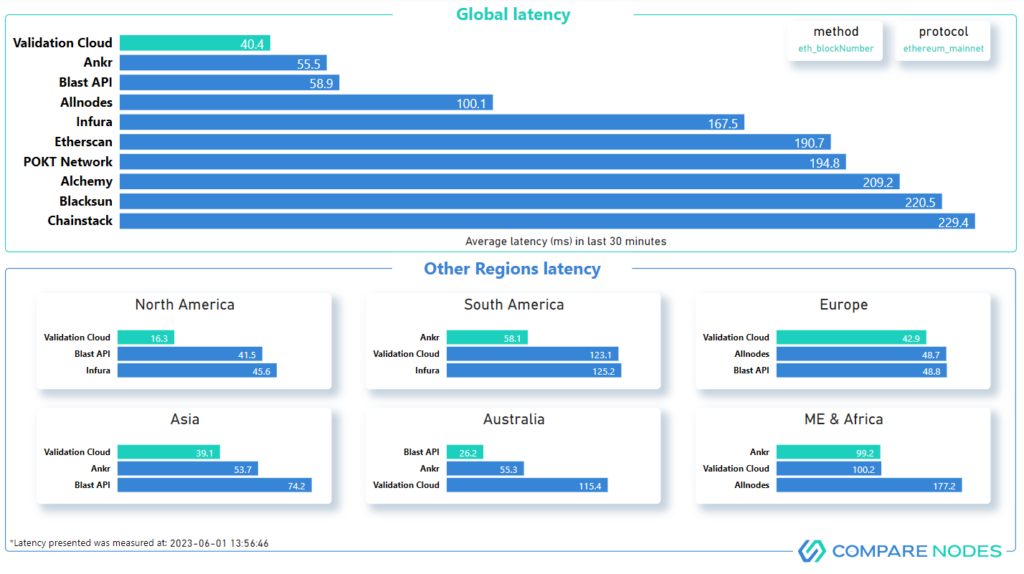
The rise of blockchain technology has sparked a revolutionary transformation, leading to an unprecedented demand for trustworthy blockchain node providers. These providers play a vital role in validating and recording transactions on the blockchain network. Selecting the right provider is crucial, as it can be the difference between building a successful unicorn startup and joining the ranks of failed projects. In this article, we will explore the key factors to consider when choosing the best blockchain node provider for your business.
1. Do You Need One or More Chains?
When it comes to choosing a blockchain node provider, the first thing you’ll need to consider is whether you need one or more chains. If you’re planning to work with different blockchains, you’ll have to find a supplier that supports multiple chains, which can be done by using the Advanced filtering options of the Providers directory. That way, you can save resources and precious time in the long haul. However, if you only need to work with one chain, you might want to consider going with a specialized provider that’s all about that one blockchain, as it makes no sense to pay for the privilege of using something you don’t need.
2. Evaluating the Free and Paid Options of Node Providers
To pay or not to pay, that is the question – at least when it comes to choosing between a free or premium account. Free accounts usually work well for small-scale projects or testing, but they often come with limitations on API calls and other pesky restrictions. If you’re tackling a more extensive project or you just need additional features, support, and flexibility, upgrading to a premium/paid account might be worth the investment. If you are looking for public endpoints, a Library seems like a great tool to start with.
3. Ensuring Secure Authentication with Blockchain Node Providers
When it comes to choosing a blockchain node provider, one of the MAIN things to consider is the authentication method they use. Some use only usernames and passwords while others will use API keys or other security mechanisms. As with many other things in life: safety first, choose a provider that uses a secure authentication technique to protect your data. Look for two-factor authentication, API keys, and other advanced security features, such as encryption.
4. Considering Supported Chains When Choosing a Node Provide
You already know that not all providers support every blockchain. If you have a specific blockchain in mind, it’s probably best to work with a provider that specializes in that particular chain. They usually have a higher level of expertise and experience with that blockchain, making them a better choice.
On the other hand, if you plan to work with multiple chains, it’s best to find a provider that supports all (or at least a majority) of them. This will save you the time and effort of managing different providers for each blockchain.
Don’t forget to look at the provider’s reputation and track record with the specific chains you’re interested in. They should have a good track record of supporting the chain and providing reliable service.
5. Reliability: A Crucial Factor in Selecting a Blockchain Node Provider
When selecting a blockchain node provider, you have to consider the reliability of their service. A reliable provider will have a high level of uptime, reducing the risk of costly downtime that can delay your project. Look for providers with a proven track record of dependability and a commitment to providing a service level agreement (SLA) that guarantees a particular degree of uptime. By prioritizing reliability in your selection process, you can ensure that your blockchain project runs smoothly and without unexpected interruptions, it’s also a good idea to look for providers that offer backup nodes or redundancies to minimize the risk of downtime.
6. Performance Assessment: Choosing a High-Performing Provider
When selecting the best blockchain node provider for your needs, an important factor to consider is performance, specifically the RPC latency performance. The RPC (Remote Procedure Call) latency directly impacts the speed and responsiveness of the blockchain node provider’s services. It is important to assess how quickly the can provider process requests and retrieve information from the blockchain network. Lower RPC latency translates to faster response times and improved overall performance. When evaluating different providers, consider their infrastructure, network capabilities, and technical specifications to determine their ability to deliver optimal performance. By selecting a blockchain node provider with low RPC latency, you can ensure efficient and seamless access to blockchain data for your specific use case. There are tools that measure RPC latency continuously or ad-hoc (per request) where you can select your own endpoint and compare it to others from all over the world.

7. Cost Considerations: Selecting an Affordable Blockchain Node Provider
When it comes to choosing a blockchain node provider, the cost is definitely a factor. Since different providers offer varying rates, it’s important to find one that fits your budget but doesn’t compromise on quality, or access to services you need. Don’t forget to think about additional expenses such as data storage or extra API calls that you may need, as some providers offer different pricing tiers with varying levels of features and services.
8. Decentralized or Centralized? Exploring Options for Blockchain Node Providers
Another important consideration when choosing the best blockchain node provider is whether you prefer a centralized or decentralized solution. Centralized node providers offer a more streamlined and user-friendly experience, as they handle all the technical aspects and maintenance of the nodes on your behalf. This approach is suitable for individuals or organizations seeking convenience and simplicity. On the other hand, decentralized node providers offer a higher level of autonomy and security. With a decentralized solution, you have more control over your node, as you are responsible for its setup, maintenance, and security. Decentralized providers often emphasize privacy and trustlessness, appealing to those who prioritize transparency and independence.
9. Customer Service: An Essential Aspect of Blockchain Node Providers
We can’t forget the customer service. As technical as the field is, you’re still buying a product and chances are, you will run into an issue at some point. Look for a company that has a dedicated team that can answer any questions or help you troubleshoot when you need it. Bonus points if the company delivers documentation and resources, as well as training or onboarding as that will make things much easier for your team.
Parting words;
The provider you select will be critical to the success of your project. A poor decision can lead to delays, security breaches, and other problems that have a substantial impact on your bottom line. A dependable and secure provider, on the other hand, can help assure the success of your project and give you the assistance you require to meet your objectives.
While selecting a blockchain node provider, don’t rush into a decision. Spend time researching your options, comparing features and prices, and looking for user reviews and testimonials. Consider contacting the provider’s support team to ask any queries you may have and to gauge their degree of support.
Finally, choosing the correct blockchain node provider can make or break your project’s success. By carefully examining these aspects and taking the time to locate the perfect provider, you can ensure the success of your project.


